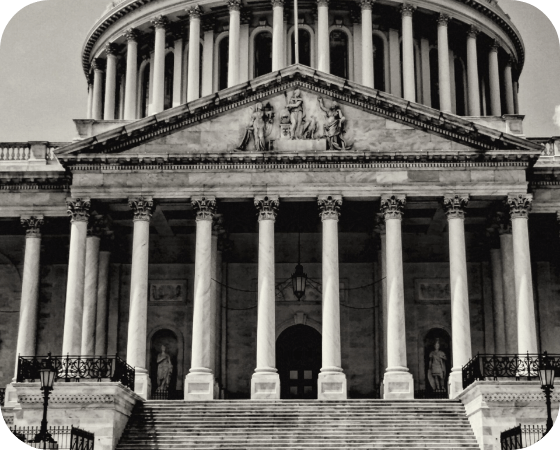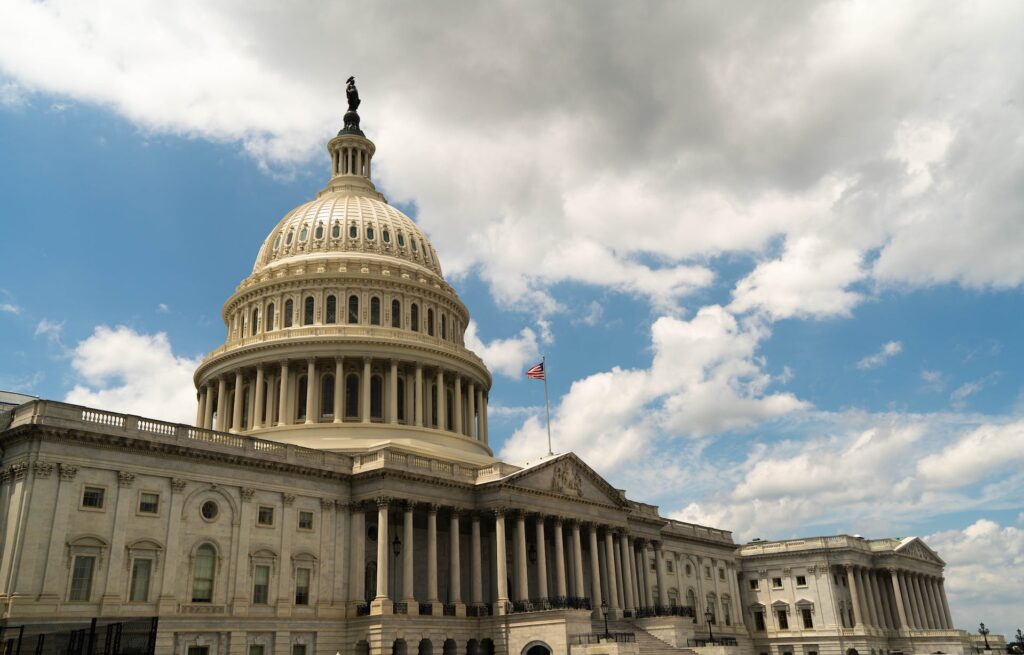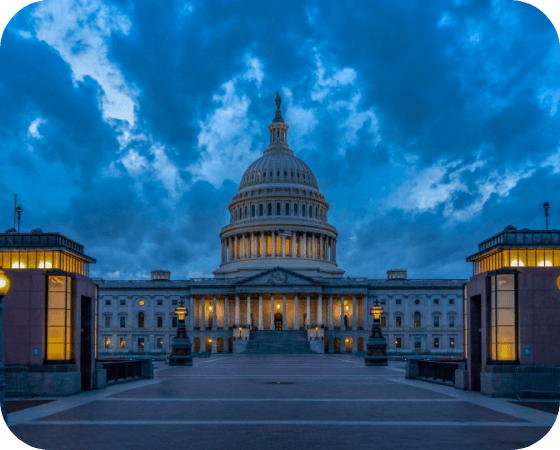Welcome back to Washington, DC the town which continues to provide as much drama as Hollywood but without the glitz and glamour. The weather remains mild, but the heat is on for the Biden Administration and Congress to come to an agreement on a supplemental funding package for Ukraine, Israel, and Taiwan. As per the usual, this weekend your author took his four-year-old daughter to the movies, this time to see Trolls Band Together. The theme focused on a music group overlooking its differences and working together during an emergency to save one of their own from a potentially fatal outcome. If only Congress could take a cue from the third installment of the animated trilogy and work together to end the year on a successful note. Some say it happened this past week with the ousting of the disgraced George Santos from the House, but we here in Washington know there is much more to be done. We are in December and much more needs to be done! Welcome to the Week Ahead!
The Administration
As the end of the year approaches, we are beginning to see priorities of the Biden Administration being challenged by a divided government. The Biden Administration will continue this week to focus on pushing for its war supplemental focusing on aid to America’s allies. Much remains to be seen on this matter as congressional Republicans are demanding border security measures be coupled with the supplemental. Of particular concern remains additional funding to Ukraine, which could see Congress pass for a third time on providing additional resources. In a memo to Congress, Budget Director Shalanda Young expressed the urgency of providing additional funding to Ukraine, as she expressed no more funds exist to support Ukraine. Around 60% of the funding has remained here at home to improve military preparedness here at home, while shipping out equipment to Ukraine.
Among other White House initiatives, House Republicans are pushing back on the Supplemental Nutrition Program for Women, Infants and Children. The House failed to include extra aid money for the WIC program which helps low-income moms and babies. The program usually enjoys bipartisan support, but House Republicans are pushing to cut spending for the program this year. The Biden Administration has requested an additional $1 billion in funding for the program.
The Senate
Majority Leader Schumer is looking to move this week on putting the war supplemental on the Senate floor. The sticking point for the package, as mentioned previously, is that Republicans want to make any funding package contingent on border security reform measures. While both Senate and House Democrats agree some border reform measures are needed, Republicans are pushing for more aggressive measures on the border front. They want to include language from HR2, which Democrats view as a non-starter. Weekend talks on working together fell apart, but we can hope lawmakers return to work together to resolve the disagreement as the world is watching.
In notable committee activity this week, the Senate Finance Committee plans will hold a hearing entitled, “Drug Shortages: Examining Supply Challenges, Impacts, and Policy Solutions from a Federal Health Perspective.” The hearing will touch on drug shortages in light of critical diseases to include cancer drugs.
The House
The never-ending drama continues to drag out in the House. Last week Congressman Santos was expelled from Congress for ethical violations, (and there were a lot of them), and next the Speaker is saying he has enough votes to bring up articles of impeachment against President Biden. Deep divides remain in the narrowly controlled Republican House and more retirements are rumored by the end of the year (including former Speaker McCarthy).
With only two more weeks to go, Speaker Johnson’s honeymoon is over. The Republican majority narrows to three with Santos out and the government shutdown is looming after the holidays. The Speaker said last week they need to fund Ukraine, which sent the Freedom Caucus in an uproar. The rest of the conference is not even close to agreeing on a foreign aid package that funds Israel, Taiwan, and the border. Speaker Johnson has his work cut out for him finishing up the rest of the year and going into next. There are even rumblings they might even call to vacate the Chair on HIM!
As last week, much of Congress’s attention this week will continue to be on matters other than health care. While health policy won’t be on the floor, and even though Congress extended several expiring health provisions and programs into January, that doesn’t mean that work on important health policy matters won’t be happening. The House Energy and Commerce Committee announced that it will hold a markup of 44 pieces of legislation, with over 20 being of health policy in nature, on Tuesday. Tuesday’s markup could provide an insight into what additional provisions Congress might include in health-related legislation early next year as Congress had extended several health programs and provided protections from potential cuts into January as well.
Among the legislation being considered on Tuesday will be legislation aimed at lowering prescription drug costs and targeting pharmacy benefit managers and certain PBM practices. In addition, the Committee will consider measures to extend the work Geographic Practice Cost Index floor, to revise the phase in of certain payment changes for lab services, and an extension of certain expiring incentive payments for alternative payment models. In addition, of particular interest, will be the Committee’s consideration of legislation that H.R. 6545, the Physician Fee Schedule Update and Improvements Act, which would not only include a provision providing an additional relief of 1.75%, over current law, to mitigate the 3.4% cuts in Medicare physician payments in 2024, but it would also reform and update how budget neutrality requirements impact Medicare payment rates to physicians and other providers as well. While previous indications pointe to the fact it was doubtful that Congress would take action to provide any relief from cuts to Medicare physician payments, assuming Committee approval this week, along with Senate Finance Committee’s action last month, there seems to be growing interest in providing some relief from pending Medicare physician payment cuts in 2024—even if that relief may need to be retroactive.
Create a great week!





